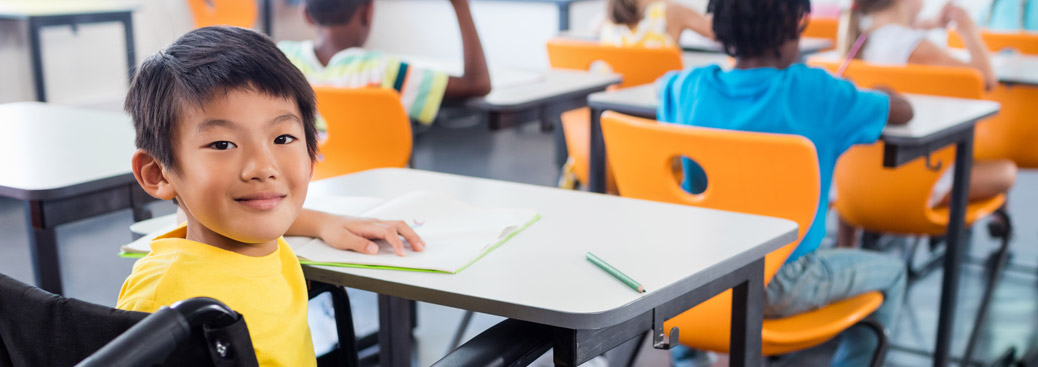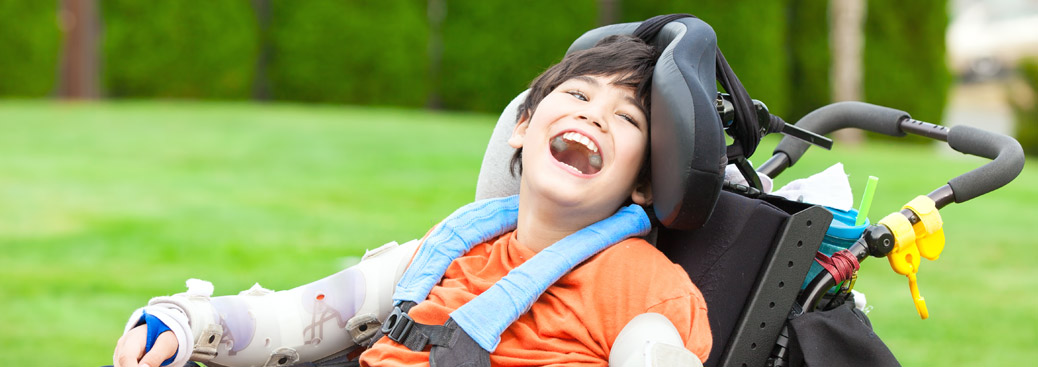Disability Strategies
Anxiety
We all worry or feel scared at times, but some children may worry so much that they avoid participating in activities, being with others, or going places. Children with disabilities and developmental challenges often experience higher rates of anxiety than their peers. Anxiety can take different forms, and some children can show symptoms of a number of types of anxiety. You can learn about the different forms of anxiety below.
Attention-deficit/hyperactivity disorder
Children with ADHD have different levels of attention and concentration. They may lose focus when doing tasks or listening to their teachers speak. It can seem like their mind is elsewhere. They may also be hyperactive and impulsive.
Autism
Every child with autism is different, there is no ‘one size fits all’. Children with autism typically have difficulties with socialising and communicating with others. Although they may have social difficulties they are often keen to join in, they just might not know how.
Blind and low vision
Blind and low vision refers to significant and ongoing challenges with the ability to see. Some children may be considered legally blind if they cannot see beyond six metres (compared to 60 metres for a child with normal vision) or if their visual field is less than 20 degrees in diameter (compared to 140 degrees for a child with normal vision).
Cerebral palsy
Cerebral palsy describes a disorder that affects the way a person moves. Cerebral palsy occurs when there is damage to the brain when it is developing, and it affects a child’s ability to control their muscles. It is the most common form of physical disability in childhood.
Communication and language disorders
Communication is the exchange of both verbal and nonverbal information. It includes talking, as well as the understanding of words, visual information, body language, facial expressions, and gestures (e.g., pointing, waving hello, nodding your head to mean “yes”). Some students may need support with communication.

Deaf, deaf and hard of hearing
Deaf (capitalised D) is used to describe individuals who use Australian Sign Language (Auslan) to communicate, and who identify as members of the signing Deaf community. Deaf people often do not consider themselves as hearing impaired.
Intellectual disability
Children with intellectual disability have challenges with thinking skills, such as reasoning, problem solving, planning, and judgement (e.g. understanding and predicting risks). They may take longer to learn new skills at school and in everyday life.
Oppositional defiant disorder
All children have times when they might refuse to do something they are asked, disrupt others or not listen. Children with oppositional defiant disorder need support with these behaviours which disrupts their day-to-day life.
Physical disability
Physical disability is a term used to describe any lifelong condition that affects a person’s ability to move, or to control their body movements. Children with physical disabilities will differ in how much their movement is impacted as there are many different types and causes.
Specific learning disability
Children with a specific learning disability find a specific area of learning very challenging, such as reading, spelling, handwriting or mathematics, but do well in other areas of learning. Some may even excel in other areas of learning. Children with specific learning disabilities often have other developmental disorders too, such as ADHD. A child can have more than one specific learning disability.

Attention
Attention describes being able to concentrate for a long time, being able to stay focussed on one task without being distracted, being able to divide your attention between multiple tasks (e.g., listening while completing an activity), and being able to switch your attention between different ideas (e.g., shifting your thinking to a new task or activity easily).
Behaviour
Sometimes children may behave in ways that disrupt the class and impact their educational progress. This could involve physical actions (e.g., overly rough play, damaging equipment), the way that a child interacts with others (e.g., shouting, saying unkind things), or difficulty engaging a child in activities (e.g., not listening to teachers or following instructions, children running away).
Emotions
Supporting children to develop emotion regulation skills is important for many aspects of their lives including their learning, interpersonal relationships and for their own social and emotional wellbeing. Children with disabilities and developmental challenges often need extra support with understanding and regulating their emotions.
Fine and gross motor
Motor skills describes the ability to control and coordinate movements. This can include fine motor control (e.g. small movements of the fingers and hands) and gross motor control (e.g. large and coordinated movements of the trunk, arms, and legs).
Learning and memory
Learning and memory describe the ability to take in, process, store, and recall information. This may be information that we have heard (e.g. spoken instructions) or seen (e.g. being shown the location of items). Learning and remembering information rely on many different skills.
Planning and organisation
Some children may need support in learning planning and organisation skills. This may include support with completing tasks and assignments, organising bags and lockers, and managing personal belongings and time.
Processing speed
Processing speed is how quickly you can take in and understand information, and respond to that information. Processing speed does not refer to how ‘smart’ a child is – it is about how quickly they can process and respond to verbal or visual information. Children with developmental disabilities may tend to take longer than other students to respond to instructions, or to complete tasks (including tasks they know well).
Sensory
Sensory functioning describes how the body responds to sounds, textures, lights, smells, pain, temperature and other stimuli or information in the environment. Some children can have reduced sensory awareness, such as children who are Deaf, deaf and hard of hearing, or children who are blind and low vision. Other children may find some sensory input distracting or distressing such as those with autism.
Social skills
Socialising with others requires many skills. These include being able to express thoughts or ideas, listen and understand what others say, show an interest in others, and share or take turns. Non-verbal behaviours are also important for socialising. These include using and understanding gestures, reading facial expressions, knowing how close to stand to others and whether it is okay to touch someone.
Thinking/cognition
Cognition is another word for thinking or understanding. It includes skills like how fast someone thinks, and their attention, reasoning, and problem solving. Cognitive skills will vary for each child.
Physical education
Physical education (PE) is important for children's motor skills and fitness, peer relationships, and social and emotional wellbeing. Some children may require support for PE experiences to be inclusive, respectful, safe and accessible. This includes PE lessons, policies, facilities and school uniforms.
